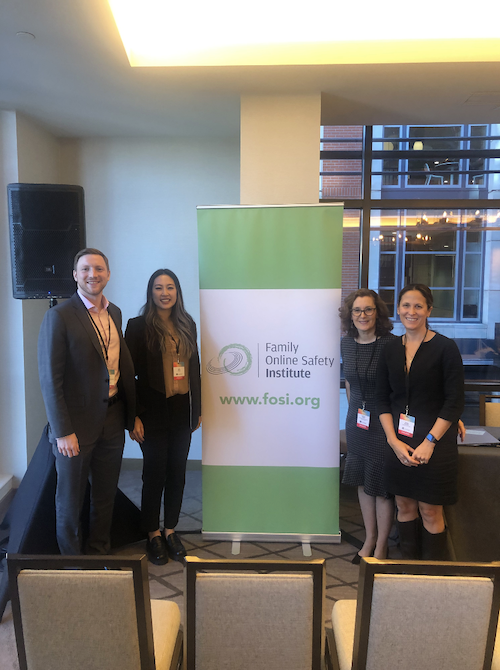Internet companies need to do their part to protect the safety and well-being of young gamers, Tencent Senior Legal Counsel Yan Perng said in a recent panel discussion at the Family Online Safety Institute (FOSI) 2022 Annual Conference in Washington, D.C.

Speaking as part of a session titled “Mindful Approaches to Online Gaming,” Perng added that online games can serve both goals to educate and entertain young players.
“Mindfulness is embodied in Tencent’s strong culture of compliance,” she said. “In video games, mindfulness involves paying attention to how our decisions may affect user safety and wellbeing, and making the conscious choice to shape happy, positive gameplay experiences.”
The panel also included Arana Shapiro, Managing Director and Chief Learning Officer at Games for Change, and Pat Vance, President of the Entertainment Software Rating Board (ESRB).
“At Tencent, we actively participate in FOSI’s work, obtain ESRB certifications and support UNICEF to make games safer,” Perng continued. “When it comes to developing and promoting online games, Tencent considers not only legal and regulatory requirements, but also how games reflect company values and local community needs.”
For example, Tencent’s community codes of conduct, management of chat features to ensure safe communications between adults and children, age gates and other safeguards demonstrate how much Tencent cares about the health, safety and wellbeing of its players.
Tencent, along with many FOSI Conference participants, emphasized the importance of safety by design. U.S. Federal Trade Commission Commissioner Alvaro Bedoya said good privacy protections and the best interest of children should be considered in new-game design. He pointed approvingly to the California Age-Appropriate Design Code Act.
Perng cited Riot Games for doing “some pretty great work in this area. Riot Games used a new game design discipline called Player Dynamics to create a more rewarding social experience while avoiding harmful interactions. In October, they launched the ‘Designing for Digital Thriving’ challenge to encourage the design of healthy, inclusive digital spaces that enable individuals and communities to thrive.”
The challenge was open to professional games designers and developers as well as academics, community managers, educators, innovators, students and others. They had until December 1, 2022, to present their designs for “Building a Future for Kids and Families,” “Fostering Healthy and Resilient Digital Spaces” and “Designing for Marginalized Voices.”
During this year’s panel, Pat Vance pointed out that over 75 percent of video game players are people over 18, underscoring the truly wide range of people who enjoy video games. Panel members also highlighted the role video games played during the pandemic in fostering social connections. Arana Shapiro discussed ways games foster life skills and reminded the audience that games can serve a serious purpose while also being enjoyable. Minecraft Education is a prime example.
Games are not only for entertainment, but also could be used for education. Tencent develops serious games, including Carbon Island (a mini-game that simulates the path of “Carbon Peaking – Carbon Neutral”, and contained knowledge of emission reduction, low-carbon concepts and carbon sequestration means), See (for people to experience the life of visually impaired people), Sky Shadow (a game developed for visually impaired individuals), Pavlov: Brain’it On (a Cognitive training game that helps players of all ages improve their attention span, information processing speed, working memory, inductive reasoning and spatial cognition.)
This was not the first time Tencent participated in a FOSI panel. Tencent General Counsel and President of Tencent America Brent Irvin noted during FOSI’s 2020 Annual Conference that the company is committed to providing tools to promote healthy gameplay. He supported a more standardized global approach to protecting young people online, something that participants at this year’s conference discussed as well.
During the conference, FOSI released a 2022 research report entitled “Making Sense of Age Assurance: Enabling Safer Online Experiences,” which found that parents like verification mechanisms involving texts or apps. More than two-thirds of parents and children in the U.S. and UK are open to using a biometric component to verify age. Tencent is open to various solutions and best practices, as long as they ensure both privacy and age verification are addressed.
Online gaming is an extremely positive experience for most players. According to National Institutes of Health research, video game play can improve cognitive skills. Meanwhile, an Oxford University study found no causal relationship between video games and mental health, but noted that quality – not quantity – of gameplay may be relevant, which underscores the importance of effective game design.





